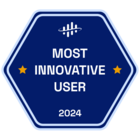This discussion is linked to the course Cognite Data Fusion for Domain Experts.
A data-driven approach to maintenance is more efficient than relying on a fixed schedule or fixing something once it’s already broken. There are plenty of opportunities around us to take advantage of smart maintenance. Look around in your home, your office, or think of your work tasks. Where could data-driven maintenance make a difference?
Share your thoughts! For example, explain what data you have available or would need in order to do smart maintenance, and how this would be an improvement of current methods.


 Check the
documentation
Check the
documentation Ask the
Community
Ask the
Community Take a look
at
Academy
Take a look
at
Academy Cognite
Status
Page
Cognite
Status
Page Contact
Cognite Support
Contact
Cognite Support








